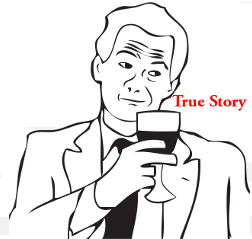The 100x valuation is based upon growth predictions, though. The whole tech ethos is to focus on growth and then monetisation later. You sacrifice short term profits for exponential growth. You aim to create a massive barrier and become so huge that no one can reasonably take you on. Facebook is virtually there. Google has the best shot at creating a rival social network, but I can't see that happening. G+ will have its place I'm sure, but it'll warp into something with a different purpose to the other social networks we already have (Twitter/FB/LinkedIn primarily).
The reason tech (i.e. web stuff) is different to most traditional businesses is that the costs are so much lower. You couldn't take the same approach to building McDonald's for example, because the costs are just too high. Thus, you'd need to be monetising from the get go to expand. Websites can become absolutely massive in terms of reach and monetisation potential, with relatively speaking minimal costs. You can grow faster by minimising advertising and revenue streams, because those things turn off users. Once you have everything in place, then you can take advantage of the massive userbase you have acquired, and begin to monetise it accordingly, which is a phase that FB is only just starting to enter.
Sure - it's an extra level of risk (they could never find a way to monetise it - but I find that hard to believe when Facebook pretty much has the entire developed world under the age of 35 communicating via it, and engaging with the site several times a day. All they've got to do is find a way to attract users to facebook when they have commercial intent, and bam.). Traditional P/E and such are a crap way to give valuation to a rapidly growing tech company IMO. They become far more useful in mature companies. (P/E would be fair to use when judging a company like Google today, for ex. I'd argue the same thing on Google's IPO day however, that P/E wouldn't be fair for them then, either.)
Say that 5 years from now, 1/3 of the world's population use Facebook, that's 2 billion people.
Those 2 billion generating $10 in profit each year for FB is enough to smash their $100bn valuation to pieces. They just need to find a better way to channel people with commercial intent to advertisers, which I'm sure is something they're working on. (Searching for products including recommendations from your friends etc and their past purchasing habits.. all sorts of things become possible).


